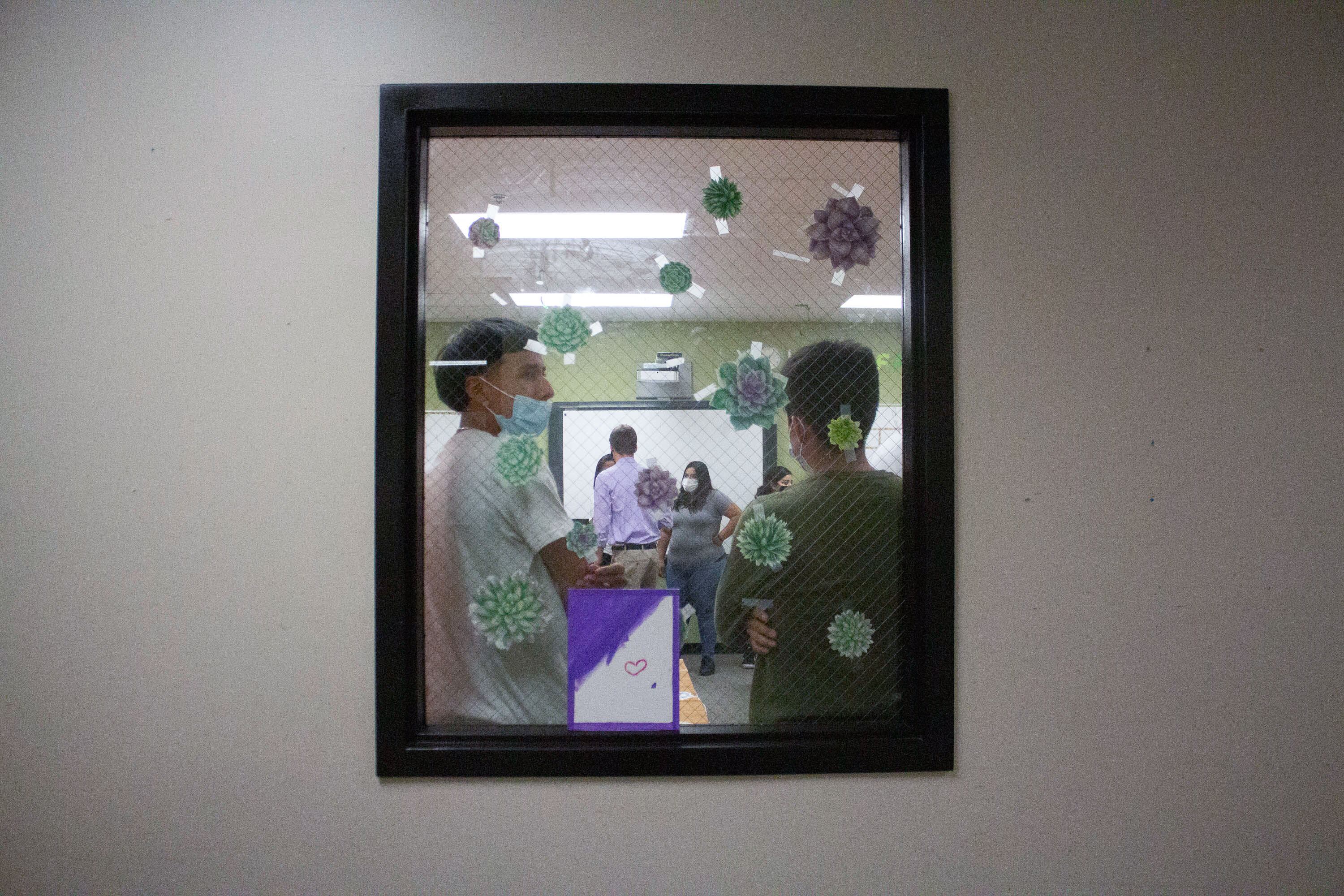Illinois should respond more quickly and broadly to its youth mental health crisis, according to a report that Gov. J.B. Pritzker, mental health care advocates, and researchers released Friday highlighting how the state can better assist young children and teens.
Pritzker pledged to follow its recommendations.
“I refuse to let our youth fall through the cracks,” he said at a press conference on Friday.
Mental health crises among youth spiked during the coronavirus pandemic. Nearly 40% of all young people in Illinois who experienced major depressive episodes were not able to receive mental health services last year, the report said.
The report provides a roadmap to provide better and accessible care for young people. Currently, families have to navigate mental health services from six different state departments which makes it harder for families to get services quickly. Recognizing the roadblocks, Pritzker created the Children’s Behavioral Health Transformation Initiative last year to evaluate solutions for families in need.
The initiative’s report, “Blueprint for Transformation,” makes 12 recommendations for the state to follow. These include creating a central resource for families, improving coordination between departments, increasing capacity to serve more children and families, offering universal screening in schools and doctors’ offices, and offering incentives to mental health support staff to earn professional credentials.
Incoming state schools Superintendent Tony Sanders applauded the recommendations.
“Any student in need of behavioral health treatment deserves access to quality care, and it is essential that parents, educators, and school districts know how to help them receive that care,” Sanders said in a statement.
For more than a year, the coronavirus pandemic isolated children from their peers and schools. Even after schools reopened in fall 2021, students still had to worry about catching COVID-19. Many lost loved ones and family security, and endured gun violence, food insecurity, and homelessness.
While Illinois ranked 13th among states in providing mental health services to youth according to the Mental Health America, nearly 40% of its young people who have experienced major depressive episodes were not able to receive mental health care. The U.S. surgeon general reported that it takes an average of 11 years for a young person with an identified mental health condition to receive treatment across the nation.
Illinois spreads its mental health services across several state departments, including Human Services, Healthcare and Family Services, Children and Family Services, Juvenile Justice, Public Health and the Illinois State Board of Education. The state suffers from a worker shortage and does not provide services in certain areas. As a result, patients experience significant wait times in emergency rooms and for psychiatric inpatient units.
Recently the state took steps to improve mental health services for youth. The Department of Healthcare and Family services introduced its Pathways to Success initiative in December to help guide families through new services for mental health. Pritzker’s recently released budget proposal included $10 million toward comprehensive community-based youth services for youth ages 11 to 17 who are at risk of being directed to the child welfare system or the juvenile justice system.
In the initiative’s next step, the state will produce a plan in October to guide work on statewide mental health services for children and adolescents.
Samantha Smylie is the state education reporter for Chalkbeat Chicago, covering school districts across the state, legislation, special education, and the state board of education. Contact Samantha at ssmylie@chalkbeat.org.






